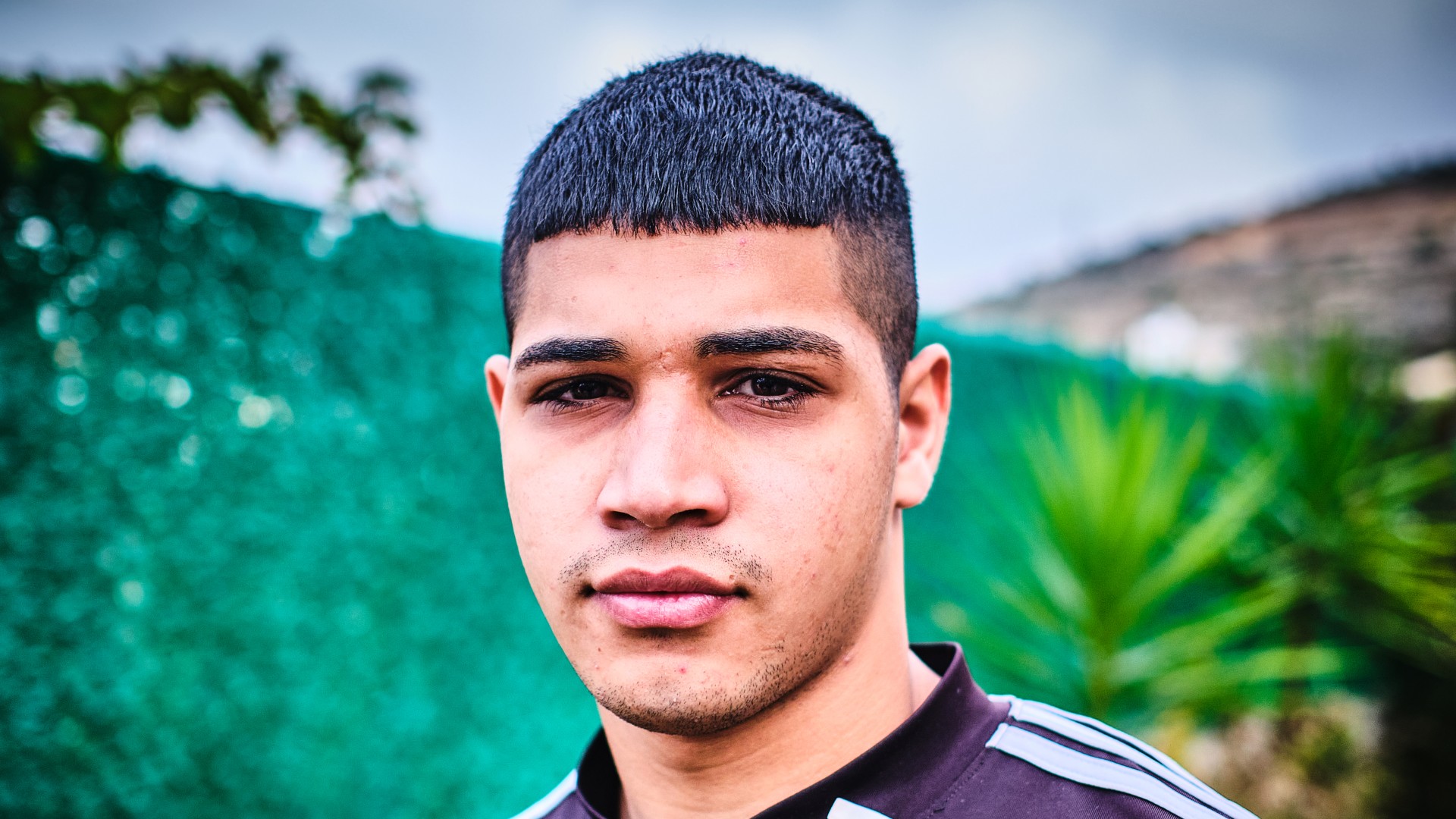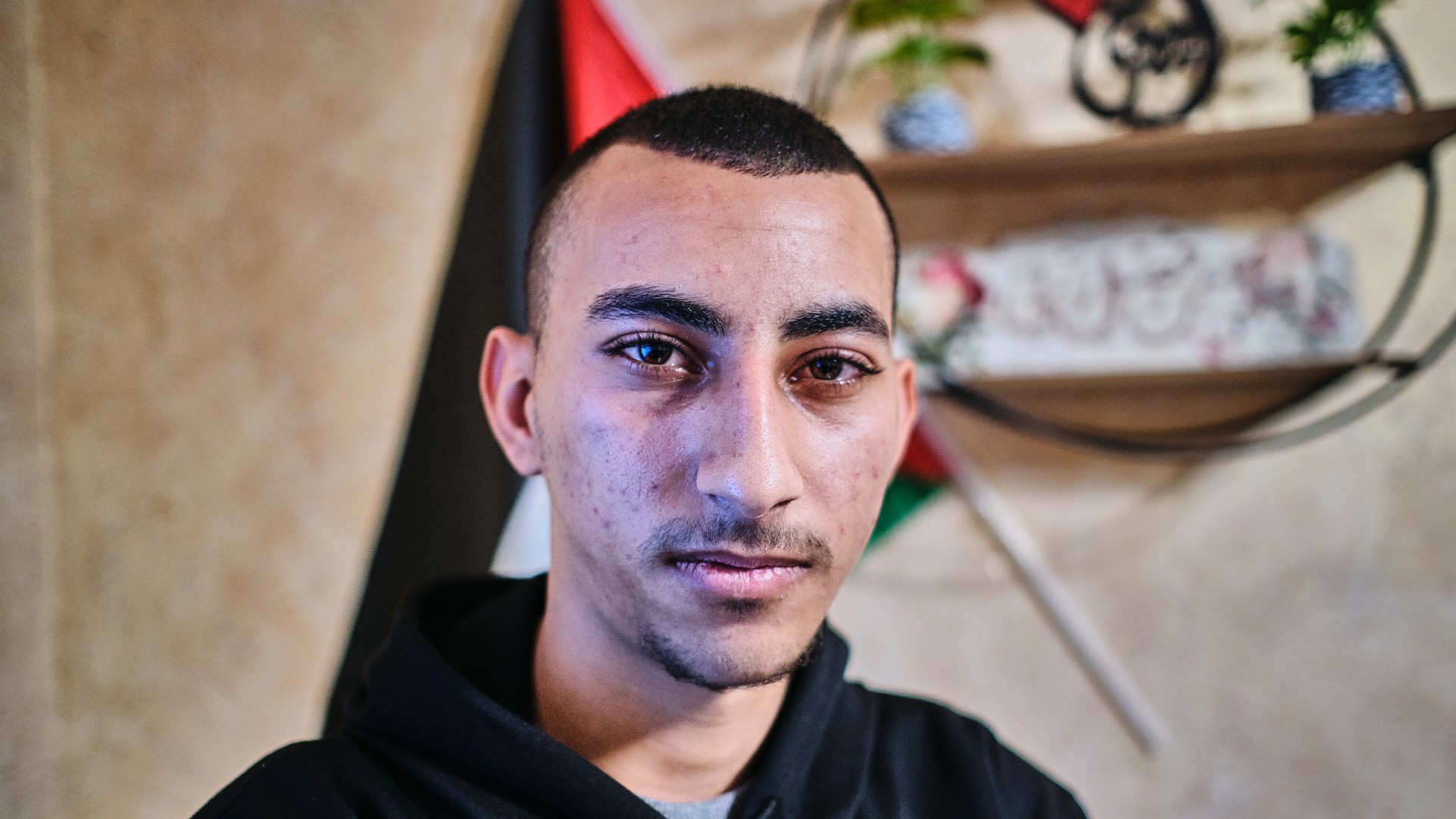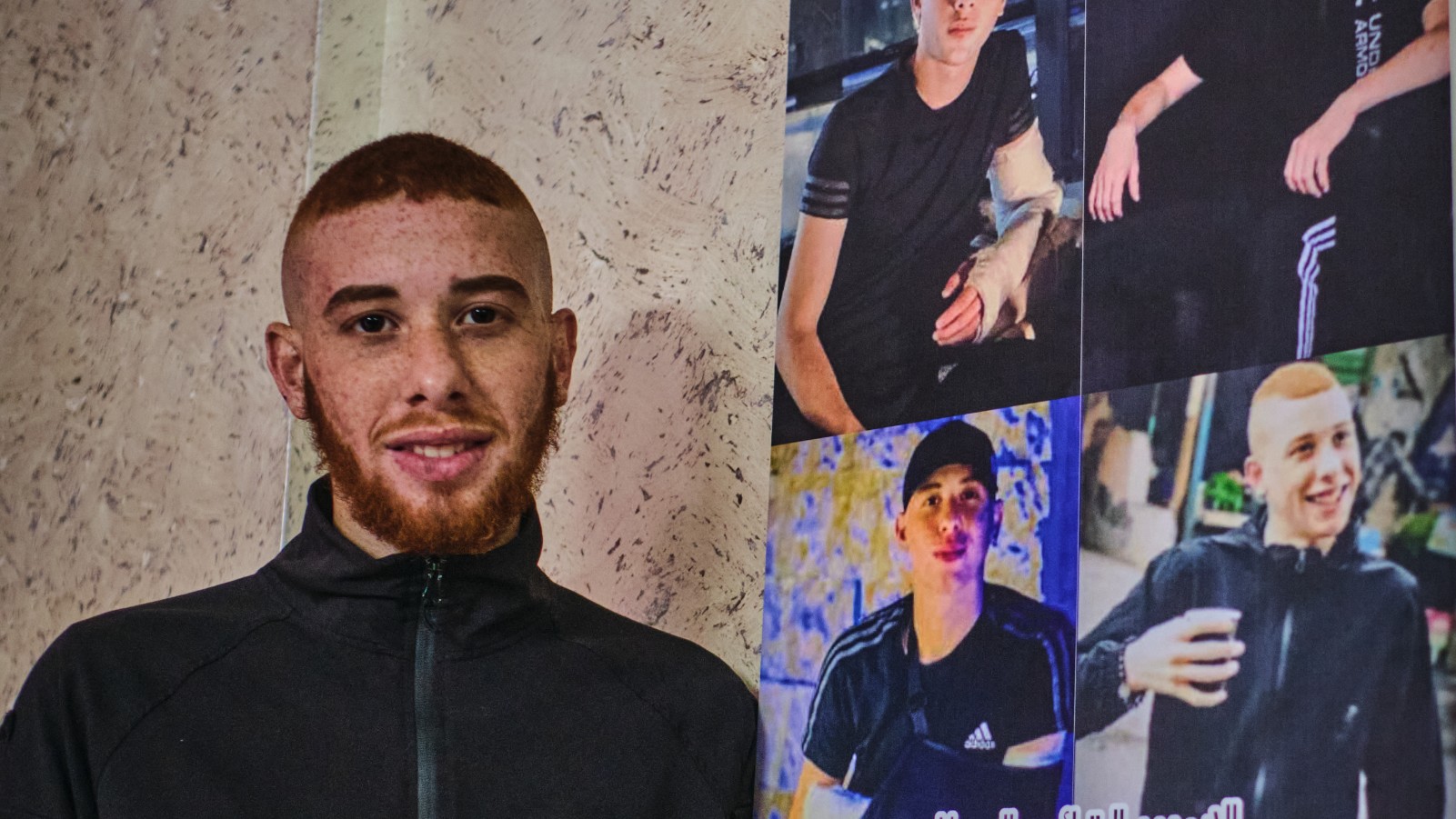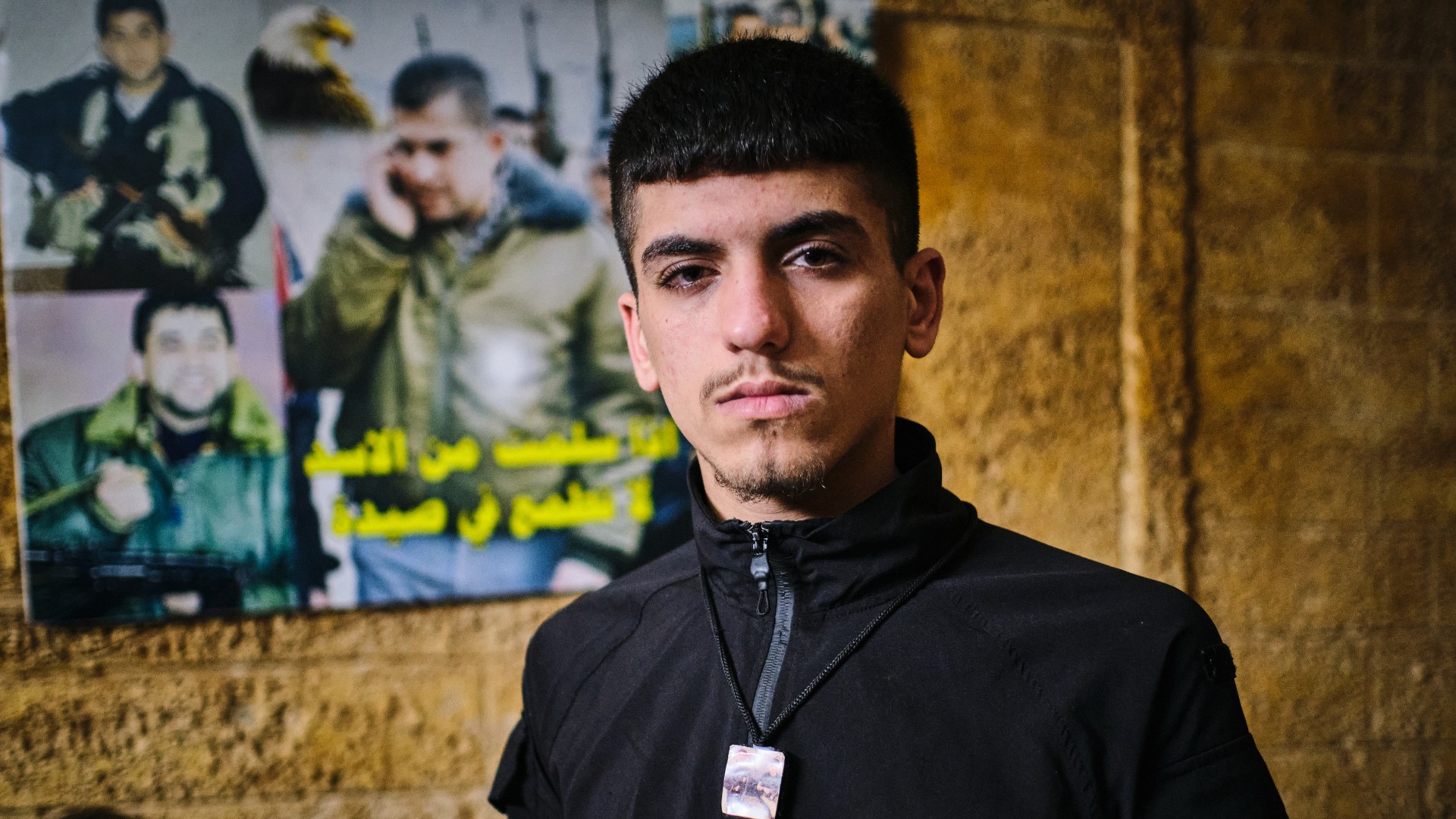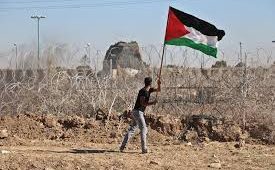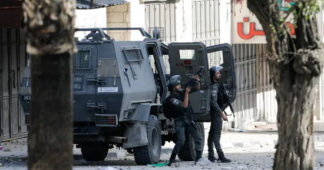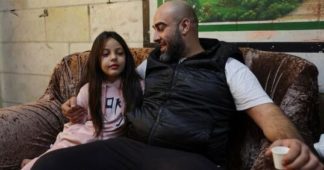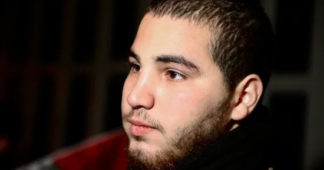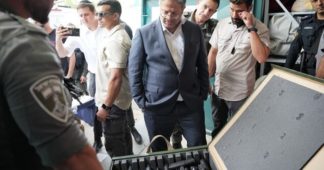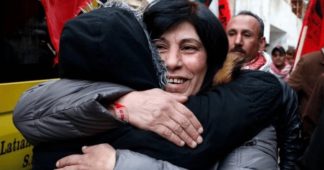Held for months without charge, these Palestinian minors endured beatings, humiliation and maltreatment until being freed during last month’s prisoner exchange
By Angelo Calianno
9 December 2023
In late November, a temporary truce between Israel and Hamas paused the bombing in the Gaza Strip. It also served as a window for the two sides to exchange Israelis taken captive during the 7 October Palestinian attack on Israel for Palestinians held in Israeli prisons.
Every year, Israeli security forces in the occupied West Bank arrest between 500 and 700 people under the age of 18.
If charged, they are most often accused of throwing stones at Israeli soldiers. Otherwise, the teens, children and many other Palestinian prisoners are held in “administrative detention” – incarcerated without being charged of any crime. Palestinians in administrative detention can be imprisoned for six months without trial, though Israeli authorities can renew this period without any time limit as they see fit.
Around 7,000 Palestinians are being held in Israeli prisons, according to Palestinian NGO Addameer.
During the 24 November-1 December truce, Israel released 240 prisoners. Of those Palestinians, 169 were minors. In return, more than 100 Israelis and others holding foreign citizenship were freed by Hamas. Seventy-eight of them were women and children.
After their release, Middle East Eye met with five of the Palestinian teens to hear about their experience.
The Israeli prison service did not respond to a request for comment on the allegations of torture and abuse.
Mohamed Bahaa Ayyash, 17
‘The guards kept punching me in the eyes’
Mohamed is from Jalazone refugee camp, north of Ramallah. He was placed in administrative detention for six months and released on 1 December from Ktziot prison in southern Israel’s Negev desert, known in Arabic as the Naqab.
The prison was brutal from the start. From the very first days, they made us walk around naked, spitting on us and beating us. After 7 October onwards, everything got worse. They gave us little to eat; they threw raw chicken and turkey on the ground. To this day, I still have stomach problems because of infections contracted in the cell.
I can’t see properly anymore. The guards kept punching me in the eyes. Even today, after a week of being free, they hurt a lot. It was freezing in the Naqab. We only had shorts and T-shirts. At night, we had to share a blanket between three of us. I remember everything that was done to me every single day. Not only do I remember it, but I also see it. It is always before my eyes. When I eat, I think of my friends still inside who are going hungry. When I am in bed, I think of how cold my companions still are.
Abdul Rahman al-Zarim, 18
‘Boys were fainting from lack of food, illness, fever and beatings’
Abdul Rahman was detained for a year and three months and released on 1 December from Ktziot prison. He was accused of hitting a settler, which he denies. He is from Kafr Aqab between Jerusalem and Ramallah.
I was moved between prisons several times, but my worst time was in the Naqab. The cold was intolerable. They used to throw food on us: raw meat and raw potatoes. They used to tell us: “Eat dogs.” The worst moment was when they brought in detainees who had arrived from Gaza: they beat them extremely hard, they suffered horrible torture. After 7 October, we were no longer even entitled to medical examinations. The boys were sick: they were fainting from lack of food, illness, fever and beatings. Sometimes from the window we would see the doctor passing by. We would shout at him to help us, but he pretended not to hear.
Today, I feel better, although I can still only eat a little bit of food at a time because of the severe pain. I am trying not to look at my phone, social media, and TV. Every time I do and hear the news from Gaza, my mind goes back to what I went through in prison.
Abdelkarim Abu Mustafa, 17
‘I was so hungry that I constantly dreamed of eating sweets’
Abdelkarim was released on 30 November, two days before the truce broke down. He served four months in administrative detention, but has been told his case remains open and has been threatened with re-arrest. Abdelkarim was previously wounded by sniper fire during an Israeli raid on Balata refugee camp, where he lives. In detention, he lost 20kg.
They beat us all the time. There was always little to eat. After the first few days, they moved me to a prison in Israel so my relatives could not visit me. The humiliations were continuous. They did not allow us to wash or change our clothes, even for a month. I saw everything: kids lost their minds and repeatedly banged their heads against the wall.
When I got out, I hugged my family again and bought lots of sweets. I was so hungry in the cell that I constantly dreamed of eating sweets. Now that I am home, I want to continue my studies to become an important person. For now, I am still very confused. I am talking to you, but my mind is still in that prison.
Mohammed Sawalmeh, 17
‘If we asked to go to the doctor, they would punish us severely’
Mohammed was seized by Israeli forces from his uncle’s house in Balata refugee camp. His uncle was a prisoner during the Second Intifada, and Mohammed suspects this is why he was arrested. He was kept in administrative detention without charge.
At first, they gave me six months, and then, once in front of the judge, they renewed the sentence. I was released a fortnight ago, but prison broke me. I lost so much weight that my family hardly recognised me. Besides the physical aspect, there was a lot of psychological torture. They were small actions aimed at demoralising us.
One of the worst moments was when they would let the settlers, the most extremist ones, into our cells. They would force us to watch them while they prayed. We, on the other hand, were forbidden to pray, and if they found us doing so, they would beat us even harder. If we asked to go to the doctor, they would punish us severely. During the torture, they often screamed at us: “You are Hamas puppies.” I didn’t think they would ever release me. The night they did, they put me in a van and told me they had to transfer me for interrogation. I could not believe it when they told me I would be released.
Wael Mesheh, 17
‘I protected the younger ones by shielding them with my body’
Wael was released on 25 November after a 14-month detention. He was accused of throwing a rock at a jeep, an allegation he denies. When he was detained in his home in Balata, Israeli forces stormed his house at 4am, hit his mother and detained his 15-year-old brother.
In prison, everything changed from 7 October onwards. At first, I worked in the prison cafeteria, and the guards treated us more humanely. During interrogations, there was always an adult from the Palestinian Authority present because we were minors. Being in prison was hard, but you could survive. Then, everything was different. From 7 October, the first thing that was taken away from us was the presence of an adult: the first sign that made us worry. Every day, the guards came to our cells, punished us, and insulted us for no reason. When they came to beat us, I protected the younger ones by shielding them with my body.
Sometimes, they made us parade with the Israeli flag. One day, during time in the courtyard, I set it on fire. I was beaten a lot and thrown into solitary confinement. But that gesture gave us all a lot of courage.
Now, I am OK because I am at home. The first thing I did as soon as I got back was to hug and kiss my mother, but still today, I cannot sleep at night. The officer who released me told me: “If they bring you back here alive, I will kill you with my own hands.” I want to give a message to boys my age in the West. They are certainly at a time when they think about having fun and living a teenager’s life. On the other hand, we live in the conditions you see, trying to defend a country, which is something none of them can imagine.
We remind our readers that publication of articles on our site does not mean that we agree with what is written. Our policy is to publish anything which we consider of interest, so as to assist our readers in forming their opinions. Sometimes we even publish articles with which we totally disagree, since we believe it is important for our readers to be informed on as wide a spectrum of views as possible.
